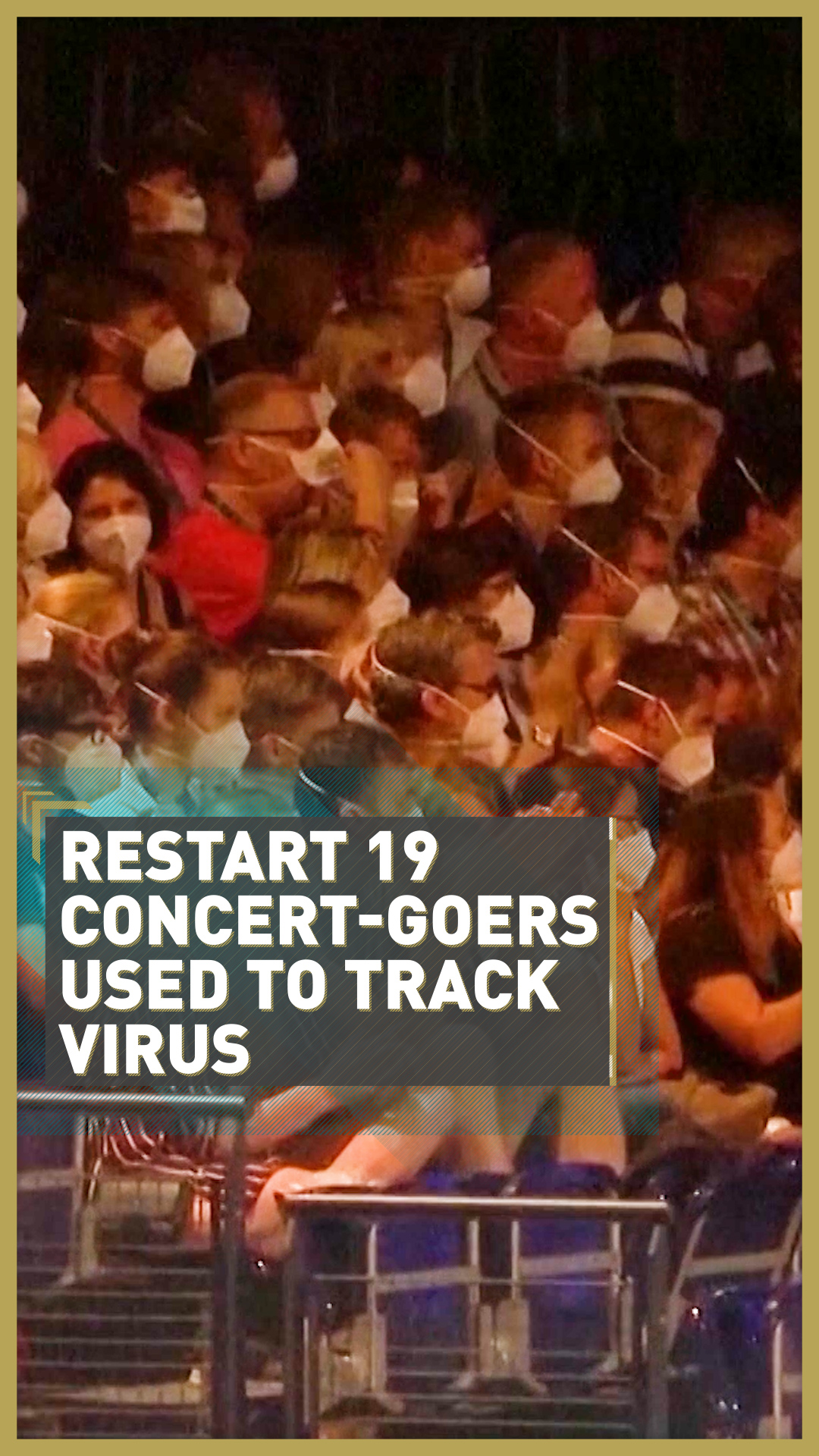02:22

Restart 19, a coronavirus-tracking concert, has been held in Leipzig, Germany, to study the spread of the virus in large crowds and better understand how to make events safer in the future.
The indoor music gathering was attended by around 1,500 people who had coronavirus tests and had their temperatures taken before entering.
People were then given tracking devices to see how they moved around the event and which areas had bottle necks. They were also given fluorescent hand gel to use, so scientists could identify frequently touched areas.
In case you missed it:
• 'Vaccine nationalism' can damage everyone's health, WHO warns
• Russian foreign minister says ready to cooperate with Huawei on 5G
The study is being run by scientists at Halle University, who hope to create a mathematical model to assess the risk of a COVID-19 outbreak at events and inform how to hold them safely.
The Leipzig concert was split up, with singer-songwriter Tim Bendzko performing at all three settings.

Fans listen to Tim Bendzko perform at the Leipzig event, which is being used for COVID-19 research. /CGTN
Fans listen to Tim Bendzko perform at the Leipzig event, which is being used for COVID-19 research. /CGTN
The first aimed to simulate a pre-pandemic music event, the second involved hygiene measures and some social distancing, and the third involved half the number of people, with everyone standing 1.5 meters apart.
Study leader Stefan Moritz said: "Right now, we are satisfied with the numbers as they are. The mood is good, we have good quality data."
Bendzko said it was stimulating to be involved in the experiment.
In case you missed it:
• No more actor or actress awards at Berlin Film Festival
• Paris police arrest 148 after PSG defeat in Champions League
"For me it was actually a surprisingly good feeling," he said. "Because I had already reckoned with the fact that everything feels a bit more sterile when everyone is sitting in front of you with a mask on and it somehow resembles more of an experimental set-up than the normal picture you see as an artist. But we really enjoyed that."
Scientists said the public behaved responsibly during the concert but the findings will not be available until the fall.
Large-scale events have been generally stopped during lockdown after gatherings at, for example, the Champions League football between Liverpool and Atletico Madrid or the Cheltenham horse racing festival, were blamed for spreading the virus.
The decision to give approval for a concert with 13,000 attendees in Germany this September has been criticized by politicians and virologists. But with ticket sales making up large parts of revenue for music and sport event organizers are desperate for them to return.
Check out our new six-part podcast series Notes on a Pandemic as CGTN Europe finds out how business, science and people have risen to the challenge of COVID-19.